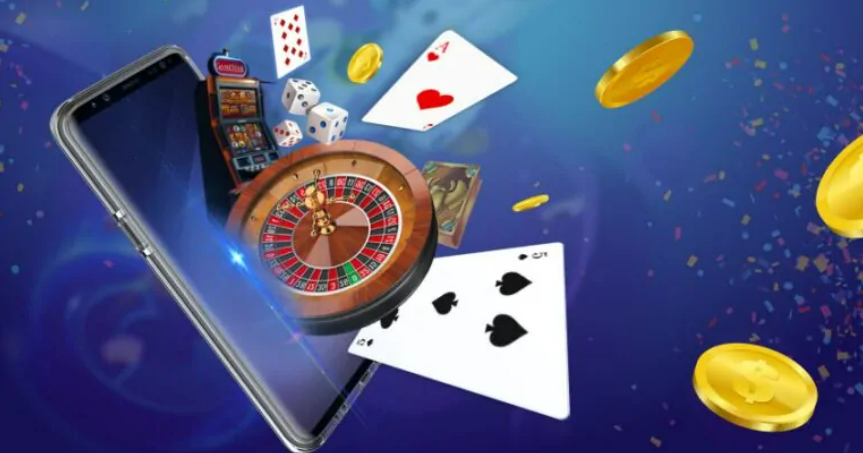
The Future of Virtual Reality
As technology continues to evolve at a rapid pace, one of the most exciting fields that has garnered significant attention is The Future of Virtual Reality in Online Casinos 888 Starz APK. With its roots tracing back to the 1960s, VR has made tremendous strides over the past few decades, moving from obscure academic projects to an entertaining and commercially viable product. As we look ahead, the future of Virtual Reality promises profound impacts across various sectors, including gaming, education, healthcare, and social interconnectedness.
Technological Advancements in Virtual Reality
The future of VR is driven by continuous technological advancements. The development of better hardware, such as lightweight headsets with higher resolution displays and improved field of vision, is paramount. Leading companies like Oculus, HTC, and Valve are racing to create devices that provide immersive experiences without the discomfort of traditional VR headsets.
Moreover, software advancements, including AI and machine learning, are revolutionizing the interactivity of VR. These technologies enable more responsive environments that can adapt based on user behaviors and preferences, thereby enhancing immersion. The integration of social features is another crucial element, allowing users to connect and interact in virtual worlds, making experiences more meaningful.
Applications of Virtual Reality
VR is already making a significant impact in various fields, and its potential applications are vast. In the gaming industry, VR has transformed how players engage with stories and characters by placing them directly in the action. The future looks bright for VR gaming, with more developers experimenting with narrative-driven experiences and multiplayer environments.
In education, VR is proving to be a powerful tool. It offers immersive learning experiences that can transport students to historical events, distant planets, or inside the human body. Such applications can foster a deeper understanding and retention of information, as students learn through direct interaction rather than passive observation.
Healthcare is another sector where VR is making remarkable strides. From surgical training using VR simulations to therapeutic applications for treating PTSD and phobias, the technology offers a safe environment for patients and professionals to engage with challenging scenarios. As these applications continue to evolve, VR may soon become a staple in medical training and patient care.
The Impact of Virtual Reality on Social Interaction
One of the most intriguing aspects of the future of Virtual Reality is its potential to reshape social interactions. With the rise of social VR platforms like VRChat and AltspaceVR, users can meet and interact in virtual spaces. This trend becomes particularly important in a world where remote work and social distancing have become the norm due to the global pandemic.
Social VR opens new avenues for connections, allowing individuals from different geographical locations to engage in shared experiences, whether attending virtual concerts, art galleries, or simply hanging out with friends in a virtual space. Enhancing the sense of presence and interaction could lead to more profound and fulfilling social relationships.
Challenges Facing the Advancement of VR
Despite its potential, the future of Virtual Reality is not without challenges. One significant concern is the issue of accessibility. For VR to reach its full potential, it must be available to a broader audience, including various socioeconomic backgrounds. This requires not only technological advancements but also pricing strategies that make VR hardware affordable for the average consumer.
Another challenge is the psychological impact of virtual experiences. As VR becomes more immersive, users may find it difficult to distinguish between the virtual world and reality, leading to issues related to addiction or escapism. Developers and researchers must work collaboratively to establish ethical guidelines and best practices to ensure safe usage of VR technologies.
The Role of Augmented Reality (AR) and Mixed Reality (MR)
While Virtual Reality focuses on immersing users in a wholly digital environment, Augmented Reality (AR) and Mixed Reality (MR) blend the digital and physical worlds. As these technologies continue to evolve, they will likely complement VR, creating hybrid experiences that enhance our interaction with both realms.
In sectors such as retail, AR can allow customers to visualize products in their own homes before purchasing, while VR can offer a fully immersive shopping experience. In education, AR can help interactive learning by overlaying information onto physical objects, enriching the learning environment in ways traditional methods cannot achieve.
Looking Ahead
As we venture into the next decade, the future of Virtual Reality will be shaped by both technological advancements and the community’s response to it. The dream of a deeply immersive and interconnected virtual landscape is closer than ever. However, it will require a committed effort from developers, businesses, and users to harness VR’s full potential responsibly.
The excitement surrounding VR is palpable, as creators and consumers alike start to recognize the possibilities it offers. As we continue to explore this evolving landscape, we can anticipate a future where Virtual Reality seamlessly integrates with our daily lives, enriching our experiences and fostering connections in ways previously deemed impossible.
